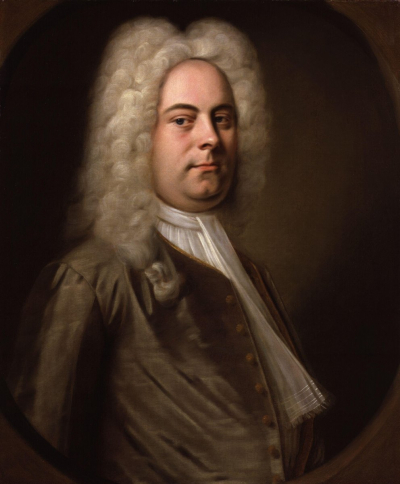Messiah (HWV 56) is an English-language oratorio composed in 1741 by George Frideric Handel. The text was compiled from the King James Bible and the Coverdale Psalter by Charles Jennens. It was first performed in Dublin on 13 April 1742 and received its London premiere nearly a year later. After an initially modest public reception, the oratorio gained in popularity, eventually becoming one of the best-known and most frequently performed choral works in Western music.
Handel's reputation in England, where he had lived since 1712, had been established through his compositions of Italian opera. He turned to English oratorio in the 1730s in response to changes in public taste; Messiah was his sixth work in this genre. Although its structure resembles that of opera, it is not in dramatic form; there are no impersonations of characters and no direct speech. Instead, Jennens's text is an extended reflection on Jesus as the Messiah called Christ. The text begins in Part I with prophecies by Isaiah and others, and moves to the annunciation to the shepherds, the only "scene" taken from the Gospels. In Part II, Handel concentrates on the Passion of Jesus and ends with the Hallelujah chorus. In Part III he covers the resurrection of the dead and Christ's glorification in Heaven.
Handel wrote Messiah for modest vocal and instrumental forces, with optional settings for many of the individual numbers. In the years after his death, the work was adapted for performance on a much larger scale, with giant orchestras and choirs. In other efforts to update it, its orchestration was revised and amplified, such as Mozart's Der Messias. In the late 20th and early 21st centuries, the trend has been towards reproducing a greater fidelity to Handel's original intentions, although "big Messiah" productions continue to be mounted. A near-complete version was issued on 78 rpm discs in 1928; since then the work has been recorded many times.
George Frideric (or Frederick) Handel (; baptised Georg Friederich Händel, German: [ˈɡeːɔʁk ˈfʁiːdʁɪç ˈhɛndl̩] (listen); 23 February 1685 – 14 April 1759) was a German-British Baroque composer well known for his operas, oratorios, anthems, concerti grossi, and organ concertos. Handel received his training in Halle and worked as a composer in Hamburg and Italy before settling in London in 1712, where he spent the bulk of his career and became a naturalised British subject in 1727. He was strongly influenced both by the middle-German polyphonic choral tradition and by composers of the Italian Baroque. In turn, Handel's music forms one of the peaks of the "high baroque" style, bringing Italian opera to its highest development, creating the genres of English oratorio and organ concerto, and introducing a new style into English church music. He is consistently recognized as one of the greatest composers of his age.Handel started three commercial opera companies to supply the English nobility with Italian opera. In 1737, he had a physical breakdown, changed direction creatively, and addressed the middle class and made a transition to English choral works. After his success with Messiah (1742), he never composed an Italian opera again. His orchestral Water Music and Music for the Royal Fireworks remain steadfastly popular. One of his four coronation anthems, Zadok the Priest, has been performed at every British coronation since 1727. Almost blind, he died in 1759, a respected and rich man, and was given a state funeral at Westminster Abbey.
Handel composed more than forty opera serias over a period of more than thirty years. Since the late 1960s, interest in Handel's music has grown. The musicologist Winton Dean wrote that "Handel was not only a great composer; he was a dramatic genius of the first order." His music was admired by Classical-era composers, especially Mozart and Beethoven.

1741Sep, 14
George Frideric Handel completes his oratorio Messiah.
Choose Another Date
Events on 1741
- 18Mar
New York Conspiracy of 1741
New York governor George Clarke's complex at Fort George is burned in an arson attack, starting the New York Conspiracy of 1741. - 10Apr
Battle of Mollwitz
War of the Austrian Succession: Prussia gains control of Silesia at the Battle of Mollwitz. - 10Aug
Battle of Colachel
King Marthanda Varma of Travancore defeats the Dutch East India Company at the Battle of Colachel, effectively bringing about the end of the Dutch colonial rule in India. - 14Sep
Messiah (Handel)
George Frideric Handel completes his oratorio Messiah.

 English
English  español
español  français
français  português
português  русский
русский  العربية
العربية  简体中文
简体中文 